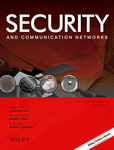Trust dynamic task allocation algorithm with Nash equilibrium for heterogeneous wireless sensor network
Abstract
Task allocation is an important issue in wireless sensor networks (WSNs), and the existing traditional solutions to this problem in high-performance computing cannot be directly implemented in WSNs because of limitations such as resource availability and shared communication medium. In this paper, we address the task allocation problem for a heterogeneous WSN, and a trust dynamic task allocation algorithm is proposed. Firstly, to ensure the nodes in the same coalition are mutually closer in distance, a discrete particle swarm optimization (PSO) is designed to generate a structure of the parallel coalitions. Secondly, in order to minimize the execution time of the tasks, save the energy cost of the nodes and balance the load of the network, we design task strategies and payoff functions by invoking the game theory in WSNs and propose a PSO with the redesigned fitness function to find the Nash equilibrium point for the purpose of improving the effectiveness of scheduling and the reliability of the network. In this step, the sink node will play the role of trust manager, and it will allocate tasks based on the Nash equilibrium point, which is a trust solution to make sure all tasks can be finished. Finally, the extensive experiments are conducted to compare our algorithm with two other algorithms. The experimental results show the feasibility and effectiveness of our algorithm, which can obtain a good balance between local solution and global exploration and achieve superior energy efficiency and network reliability within a short period. Copyright © 2014 John Wiley & Sons, Ltd.




